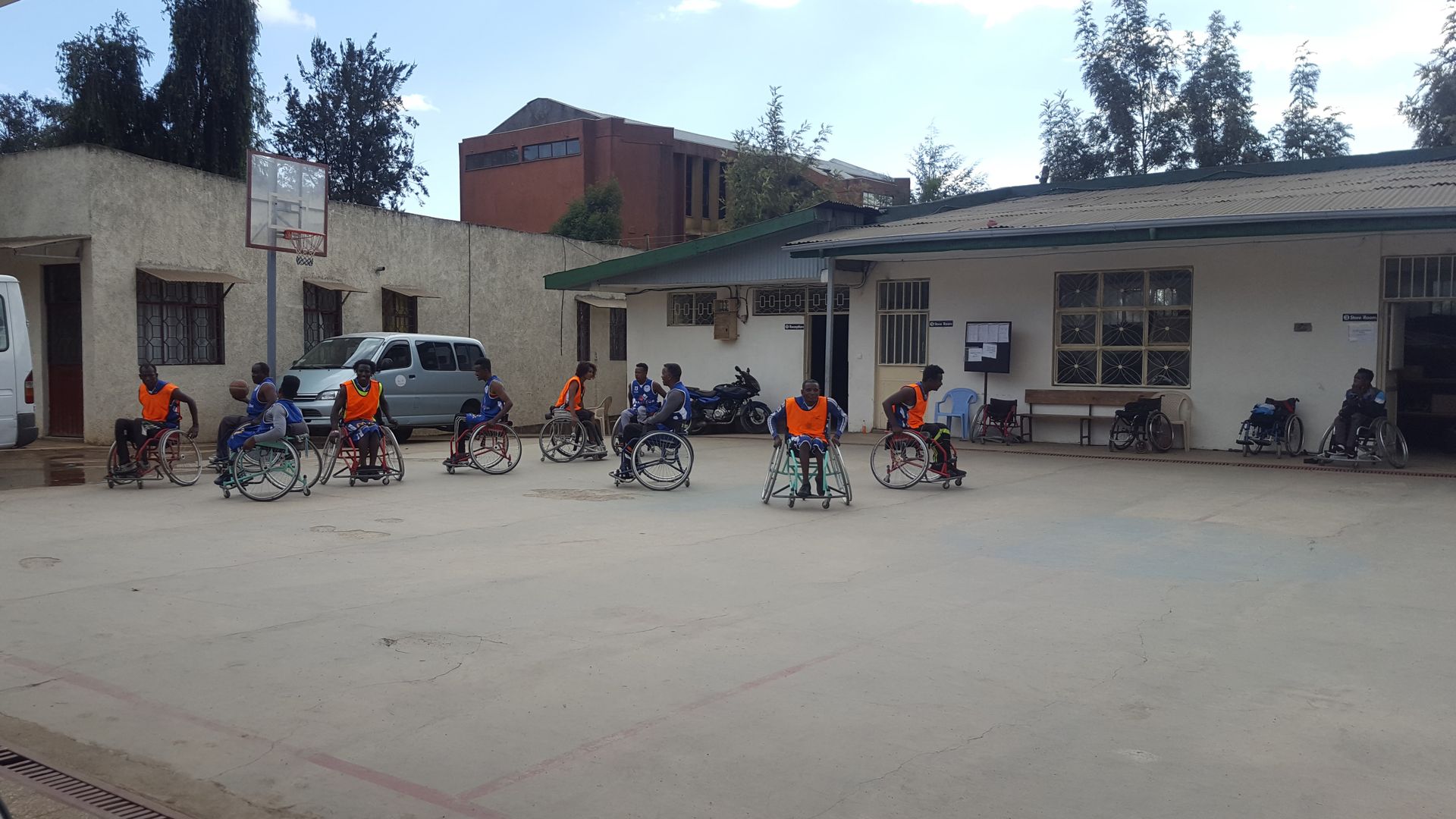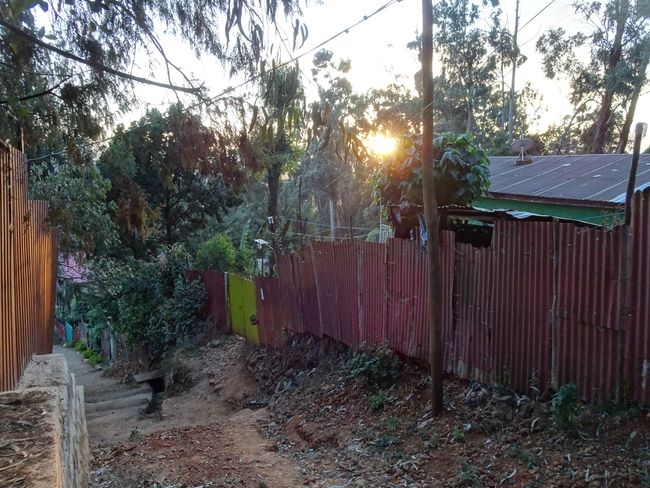Physiotherapy Addis Guzo & Excursion
E hatisitsoe: 06.03.2020
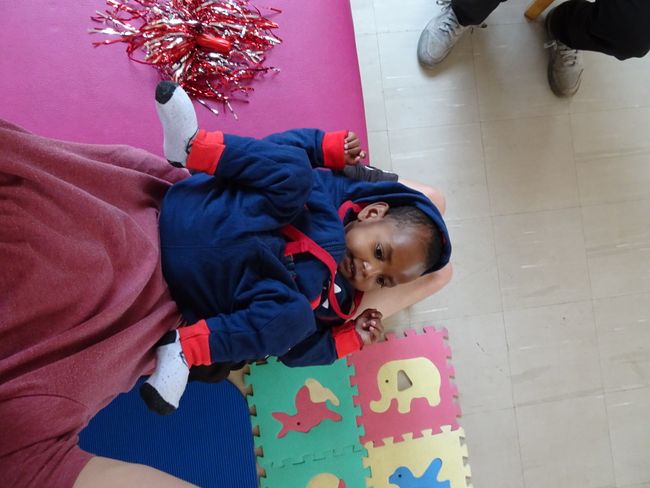
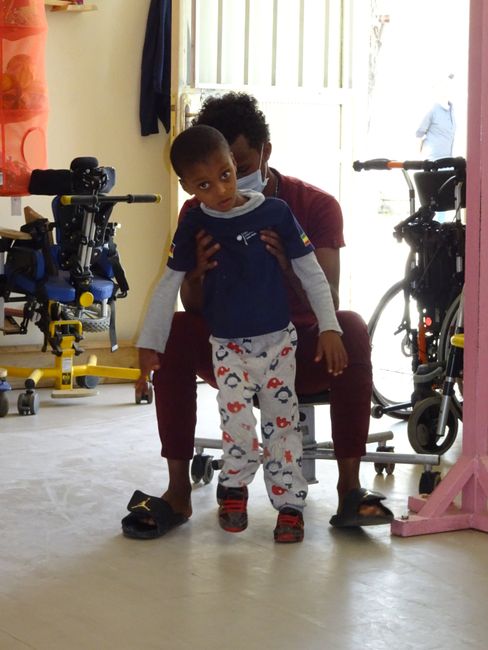
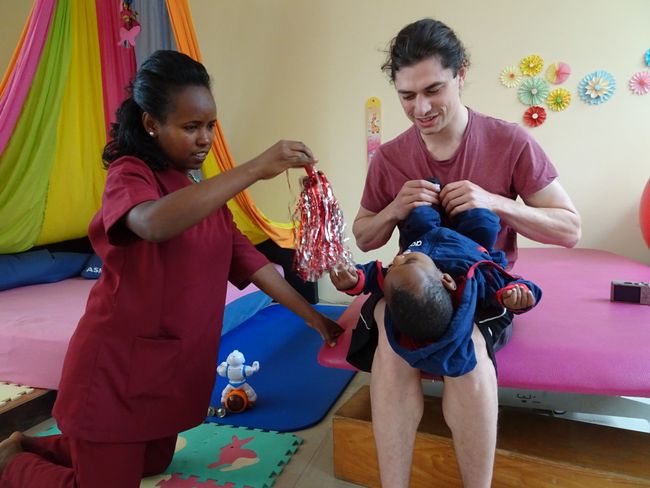
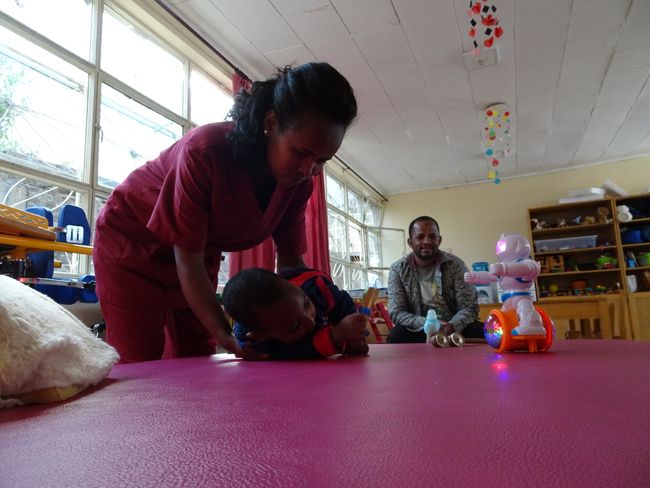
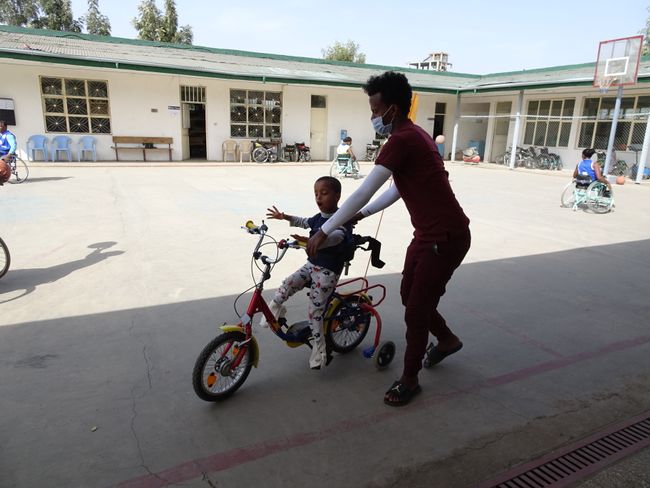
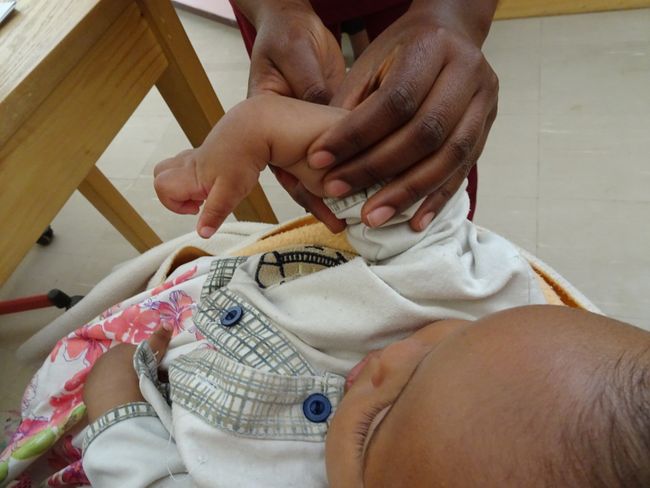
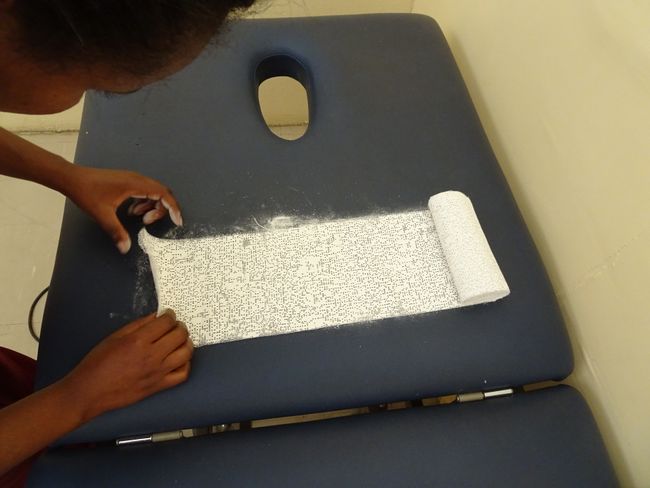
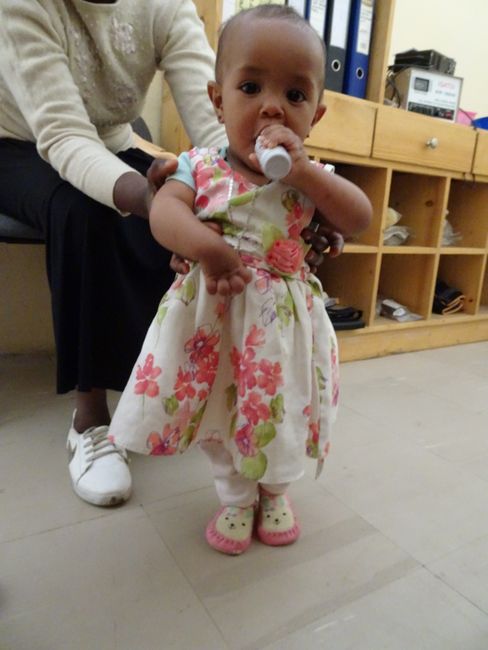
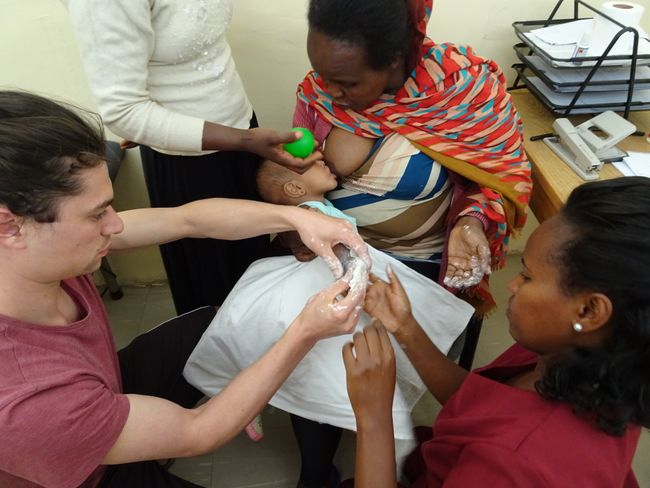
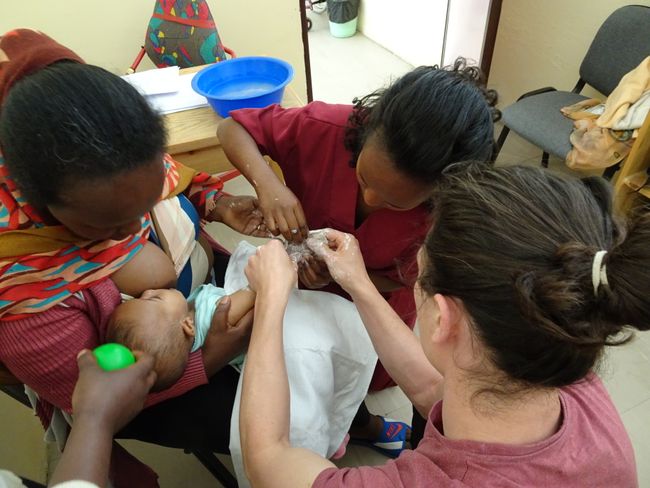
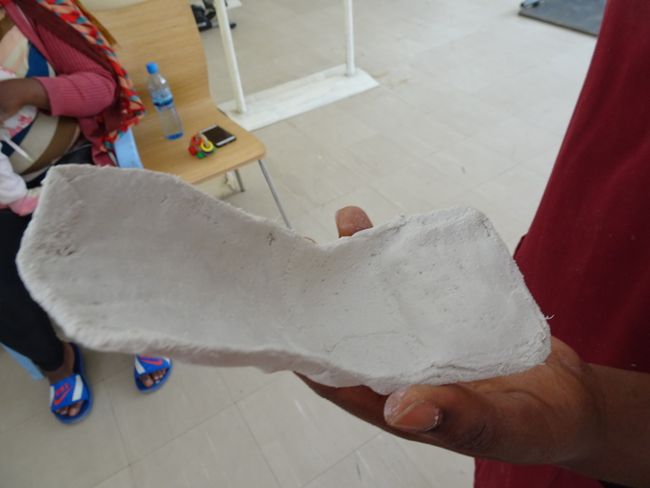
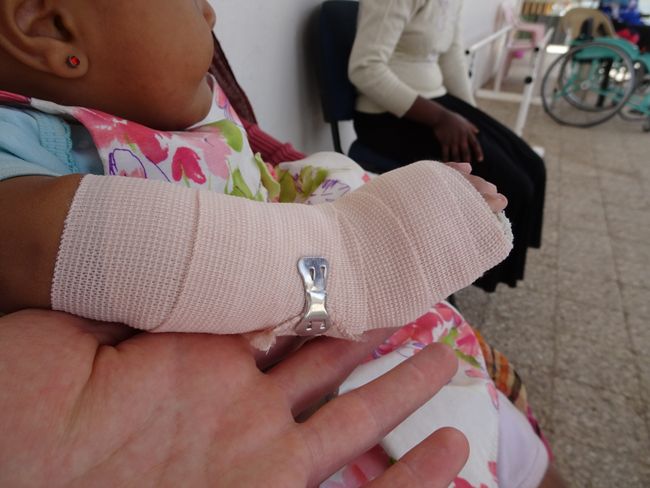
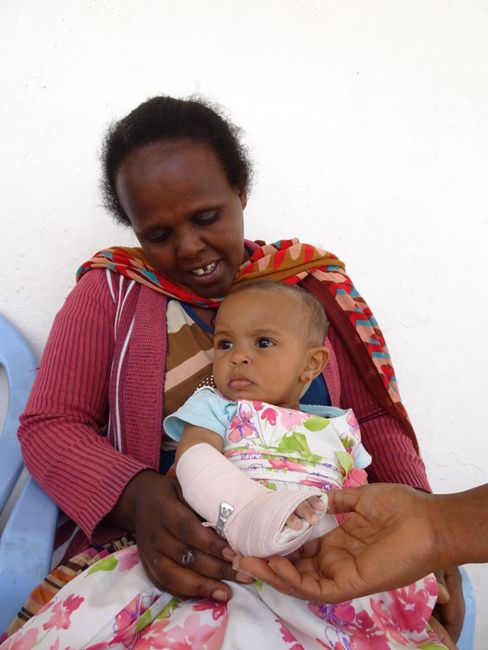
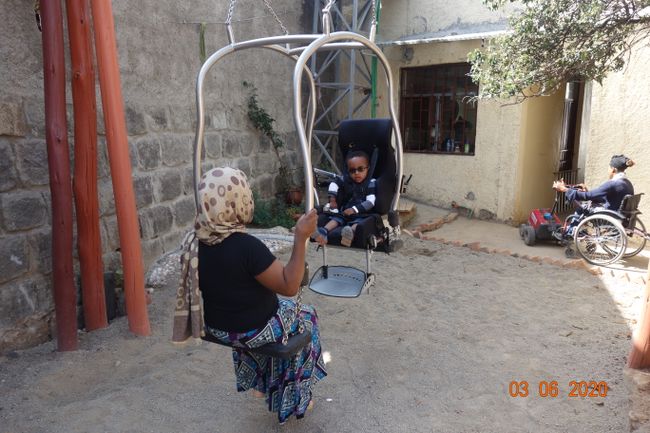
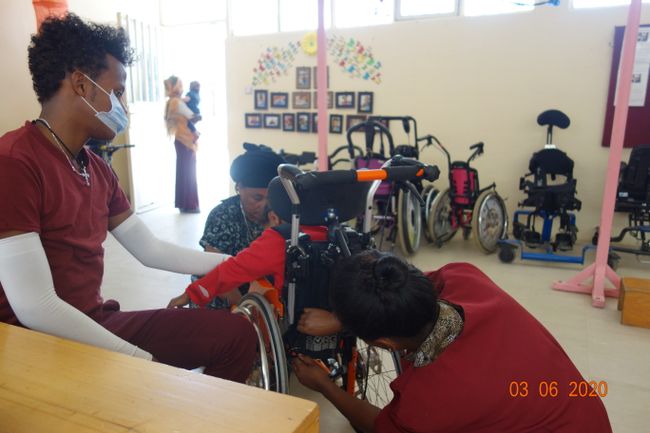
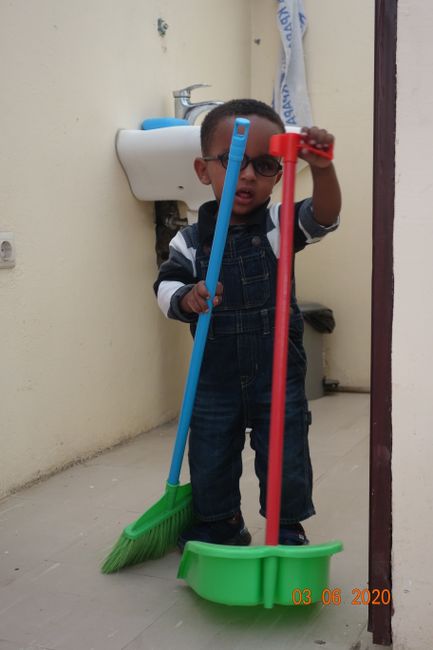
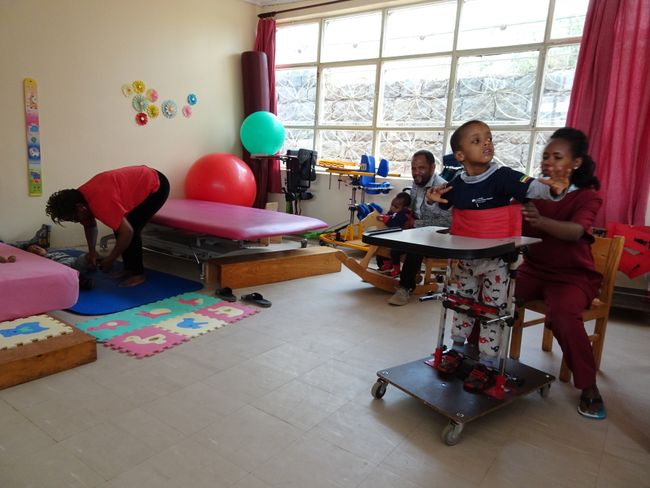
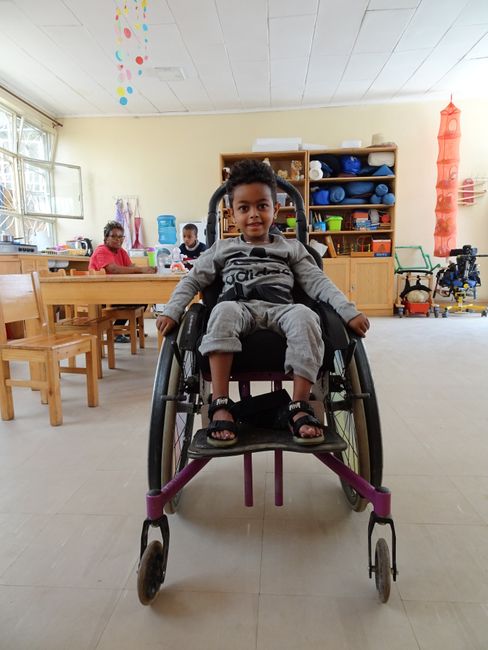
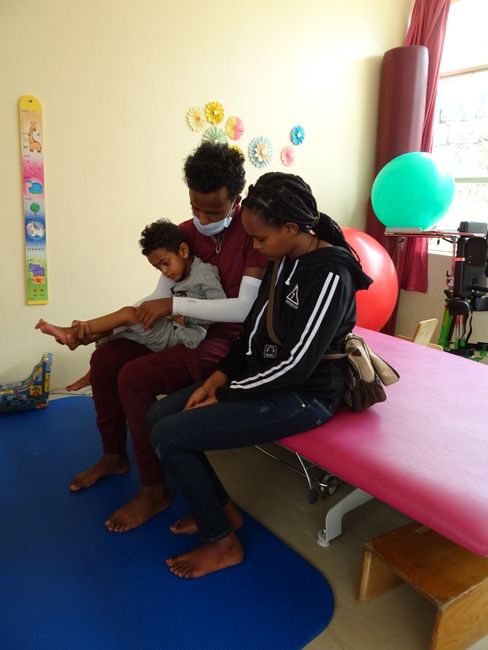
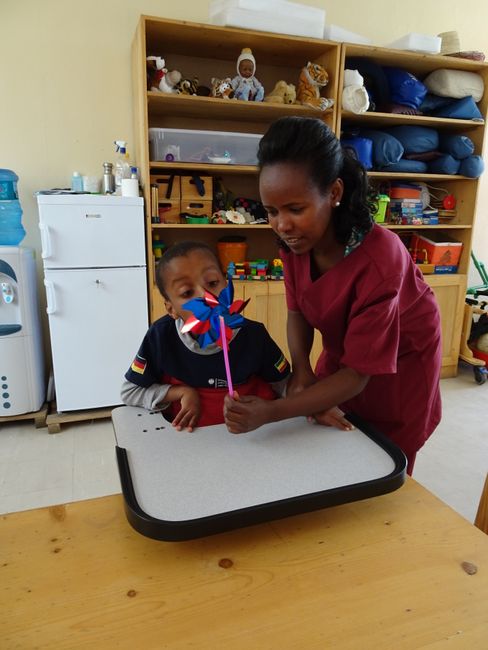
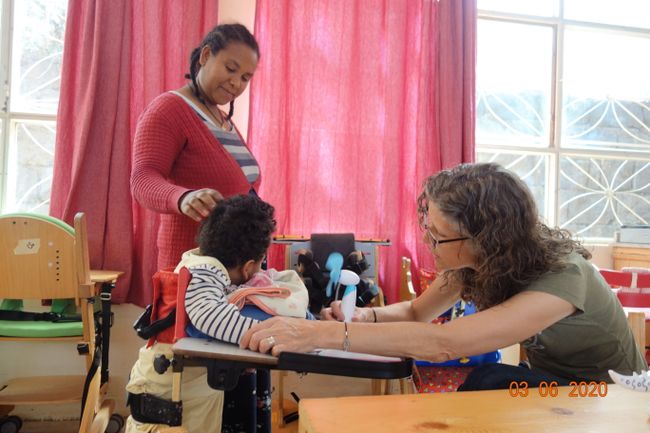
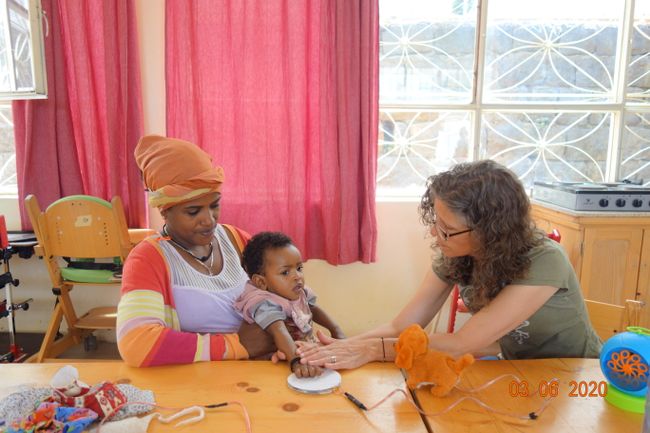
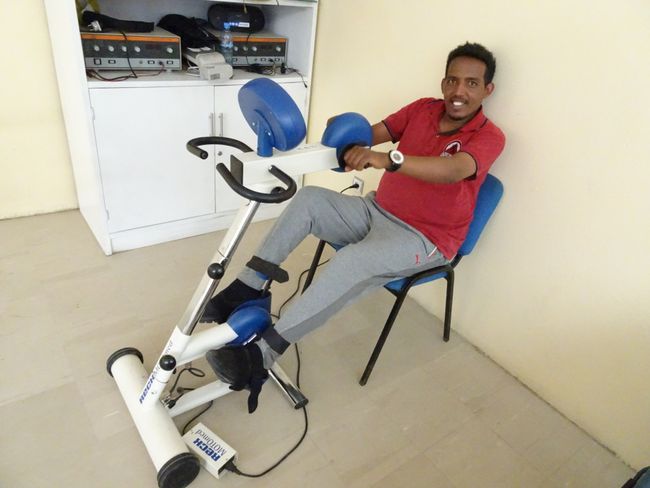
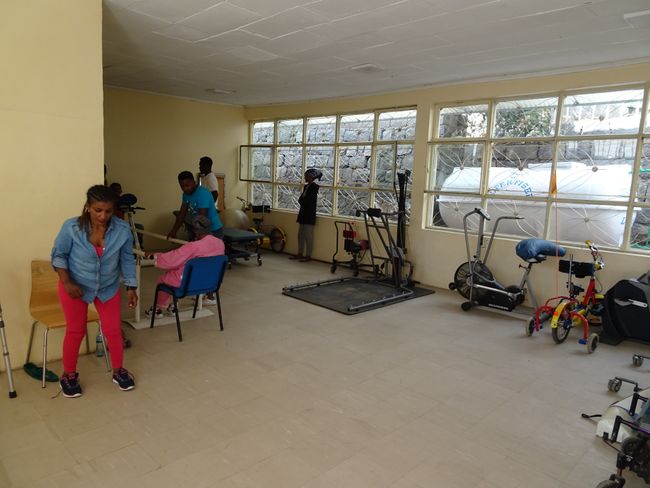
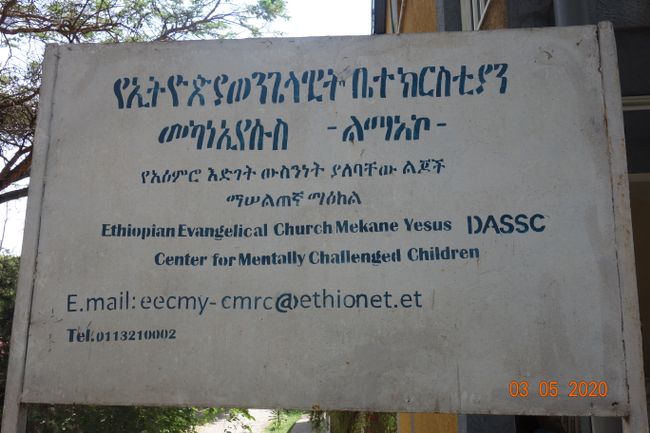
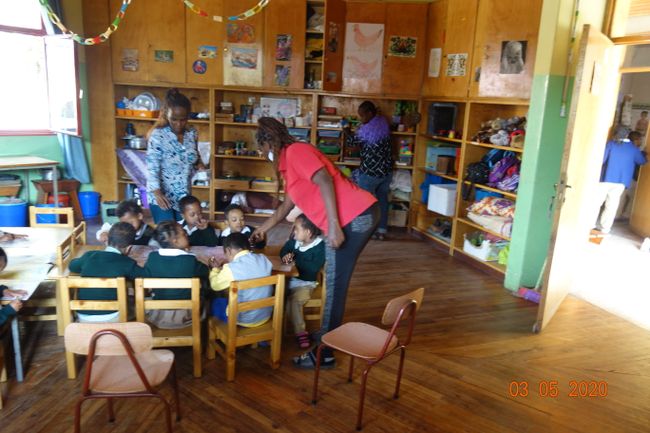
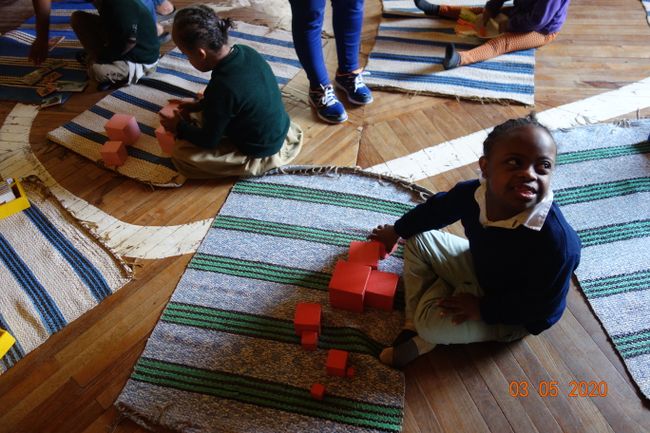
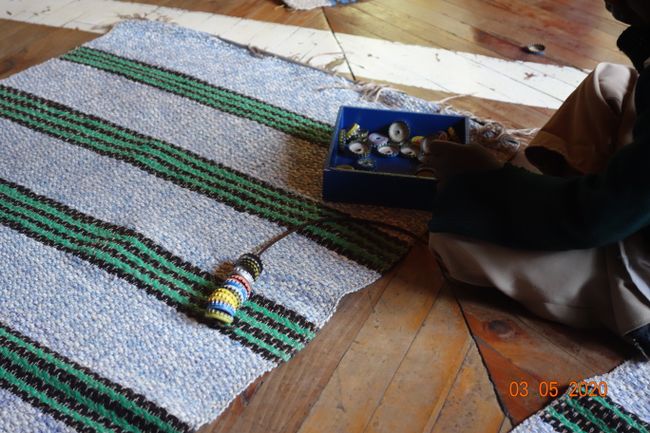
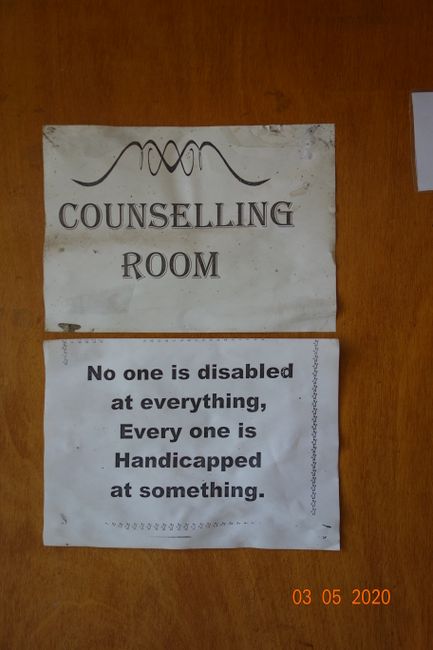
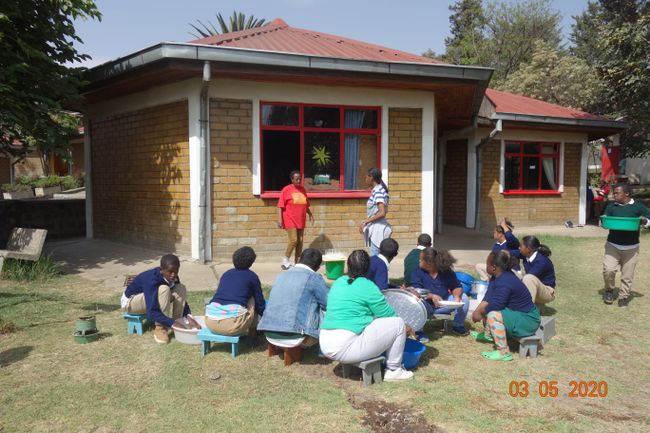
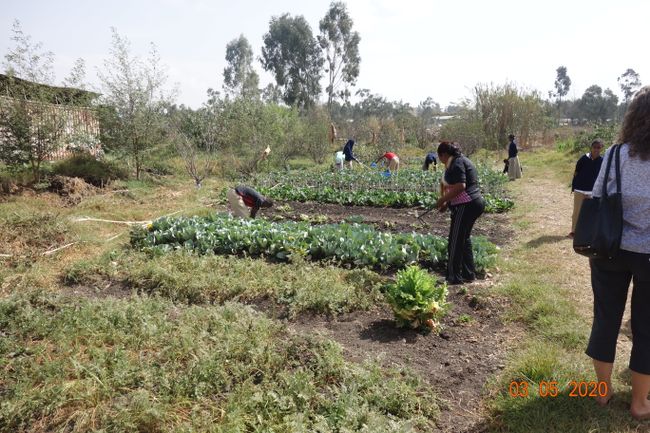
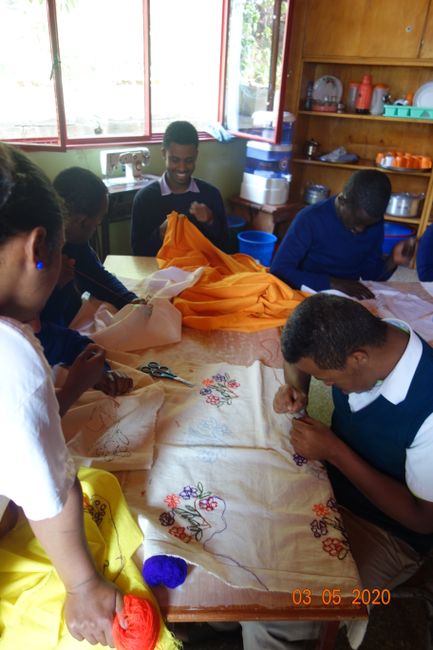
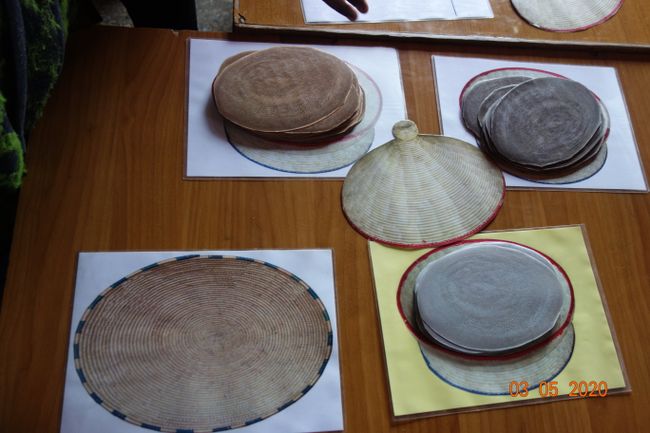
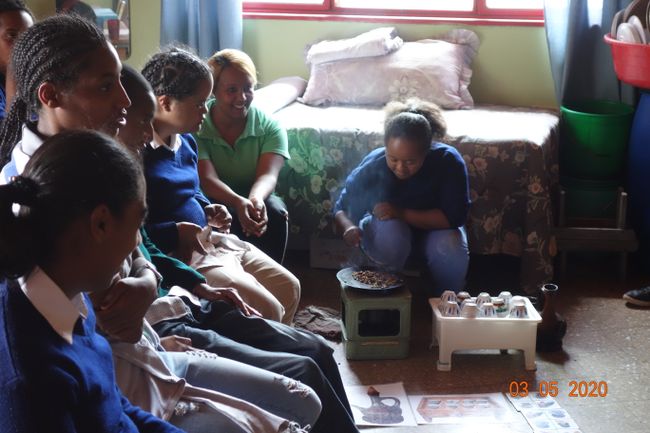
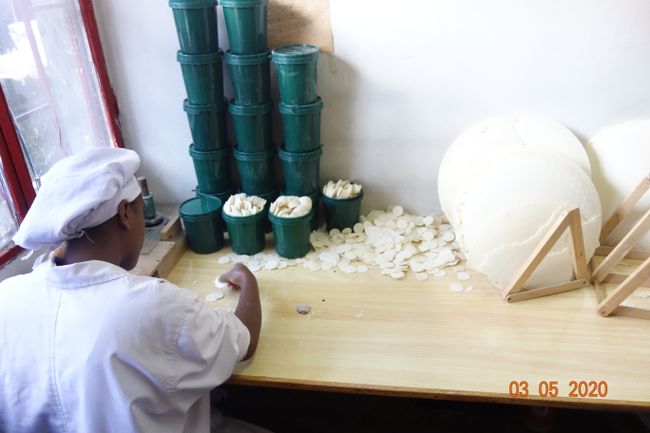
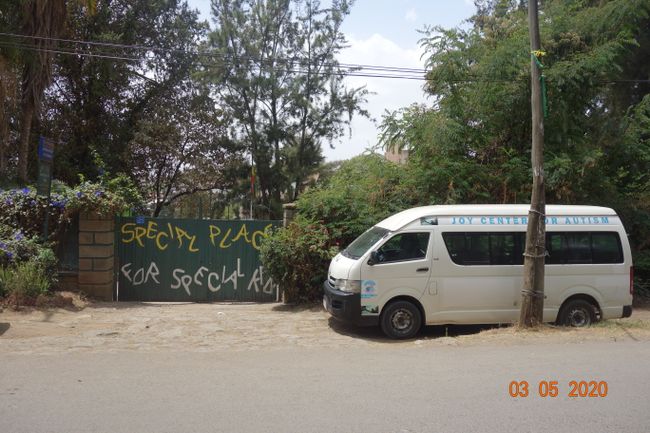
Ngolisa ho Newsletter
I have been working at the Addis Guzo Wheelchair Center for three weeks now. My colleagues are Misile, who has been working at Addis Guzo for five years, and Abel, who has just finished his training and has less experience. Working with both of them is fun and the atmosphere is great!
Every morning, the children come with a caregiver (usually their mothers) to the daycare center until noon. Depending on the day, there are about 4-6 children. Most of the children come twice a week for about 4 months, and then there is a follow-up where the physiotherapy sessions are gradually reduced. Many of the children have cerebral palsy, some have spina bifida, hydrocephalus, etc. Most of the time, there is no clear diagnosis or test results. We spontaneously decide in the morning who will treat which child. Sometimes it makes sense to treat a child together, and sometimes we take turns. And sometimes the children have different needs than physiotherapy, such as eating/drinking or changing diapers. Many toddlers between the ages of 1.5 and 7 come here. The goal of physiotherapy is to treat the children in a way that is as close as possible to 'normal development' and to instruct the parents. For example, regarding feeding or home treatment by family members. If suitable, assistive devices are provided. Passive standing in a standing table is also an integral part of therapy for most children. The most important thing is that the children have fun. There is a play and adventure garden with a swing, a small hammock, various seating options and wheelchairs, and many toys.
In addition to Mebrat, who knows all the children well, cleans the rooms, cooks, and helps where necessary, we also receive support in the daycare center from Kirsten. Kirsten is an American special education teacher who comes by irregularly twice a week. Her focus is on the communication of the children, and she works with adaptive learning and feedback, among other things. She brings various exciting and innovative gadgets or has them made by the Addis Guzo technician. Hewan, a 'social worker' (psychosocial counseling), is also sometimes in the daycare center. She knows all the children and families and provides important support.
In the afternoons, adult clients come. They also have various medical conditions. About half of the adults are elderly people who have had a stroke or musculoskeletal problems. Here, the goal is to learn specific activities, to train physical fitness, and to maintain mobility.
This week, I was able to accompany a half-day visit to two other centers. One was a 'Center for Mentally Challenged Children'. This center, in addition to physiotherapy, which works similarly to early intervention at Addis Guzo and has a similar clientele, consisted mainly of a large school for children with Down syndrome and other intellectual disabilities. The school impressed me, everything seemed to be working great, the children were happy, and the teaching was very practical. In addition to different teaching models, there was a garden, a group washing dishes, a knitting group, etc.
Afterwards, we went to the Joy Center for Autism. Here, children and young adults with autism are admitted and treated with a lot of heart and good intentions. Unfortunately, the staff did not have a solid education as specialized personnel for the care of autistic individuals, and the infrastructure was suboptimal for this clientele. Nevertheless, it is certainly better for the children to be in this center than locked up at home and sometimes even restrained with chains. This visit was a bit more difficult to process. I was glad to return to Addis Guzo and have a spicy lunch to distract my thoughts from what I had seen.
Ngolisa ho Newsletter
Araba (1)
Stefan
lieber alex,
vielen dank für diesen bericht. extrem spannend.
da ich selber - als ausgebildeter- auch mit autistischen menschen zusammenarbeite, kann ich dir versichern, dass auch eine ausbildung leider nicht immer ausreicht, um die handlungsweise dieser sehr besonderen menschen zu verstehen und ihre signale richtig zu deuten.
ist es bereits rassistisch, ein wenig positiv überrascht zu sein, dass es in addis abeba eine spezialisierte institution für menschen mit autismus-spektrum gibt? vermutlich leider schon.
jedenfalls ist es für eine gesellschaft sicher nicht ein schlechtes zeichen, dass man die spezielle situation dieser menschen erkannt hat und auch bereit ist, dieser mit besonderen mitteln zu begegnen.
ein bisschen neidisch bin ich auf dich, dass du all diese erfahrungen sammeln kannst (- aber ich bin auch ein alter sack, der langsam anfangen sollte soviel wie möglich zurückzugeben, von dem was ihm gutes widerfahren ist). geniesse es und trage es in deinem inneren weiter mit.
ich wünsche dir weiterhin viele horizonterweiternde begegnungen und das nicht nachlassende gefühl, gutes zu tun und gleichzeitig dabei beschenkt zu werden.
herzlich
stefan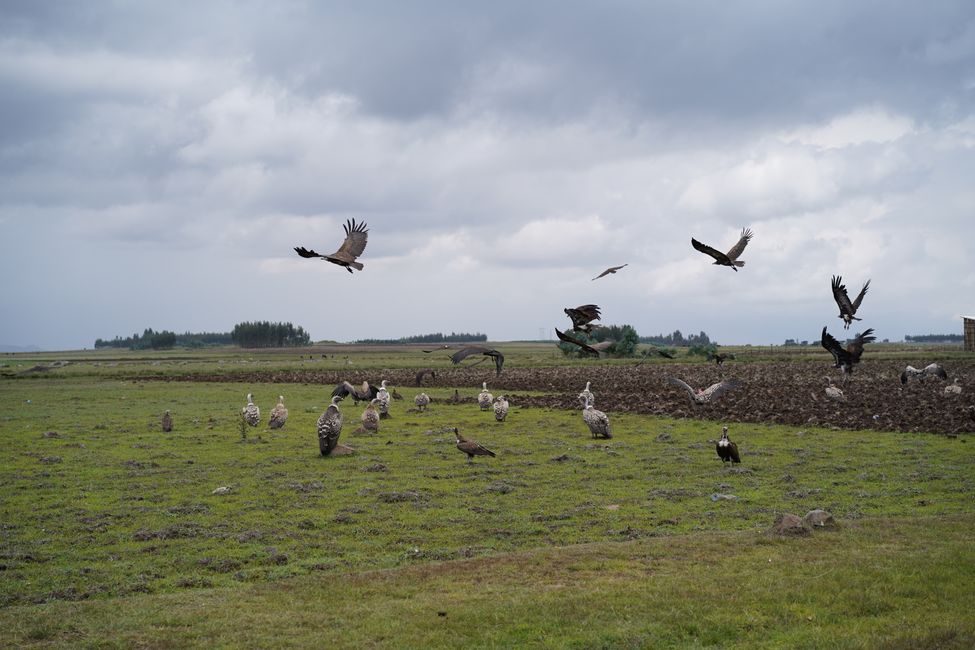
Litlaleho tsa maeto Ethiopia
